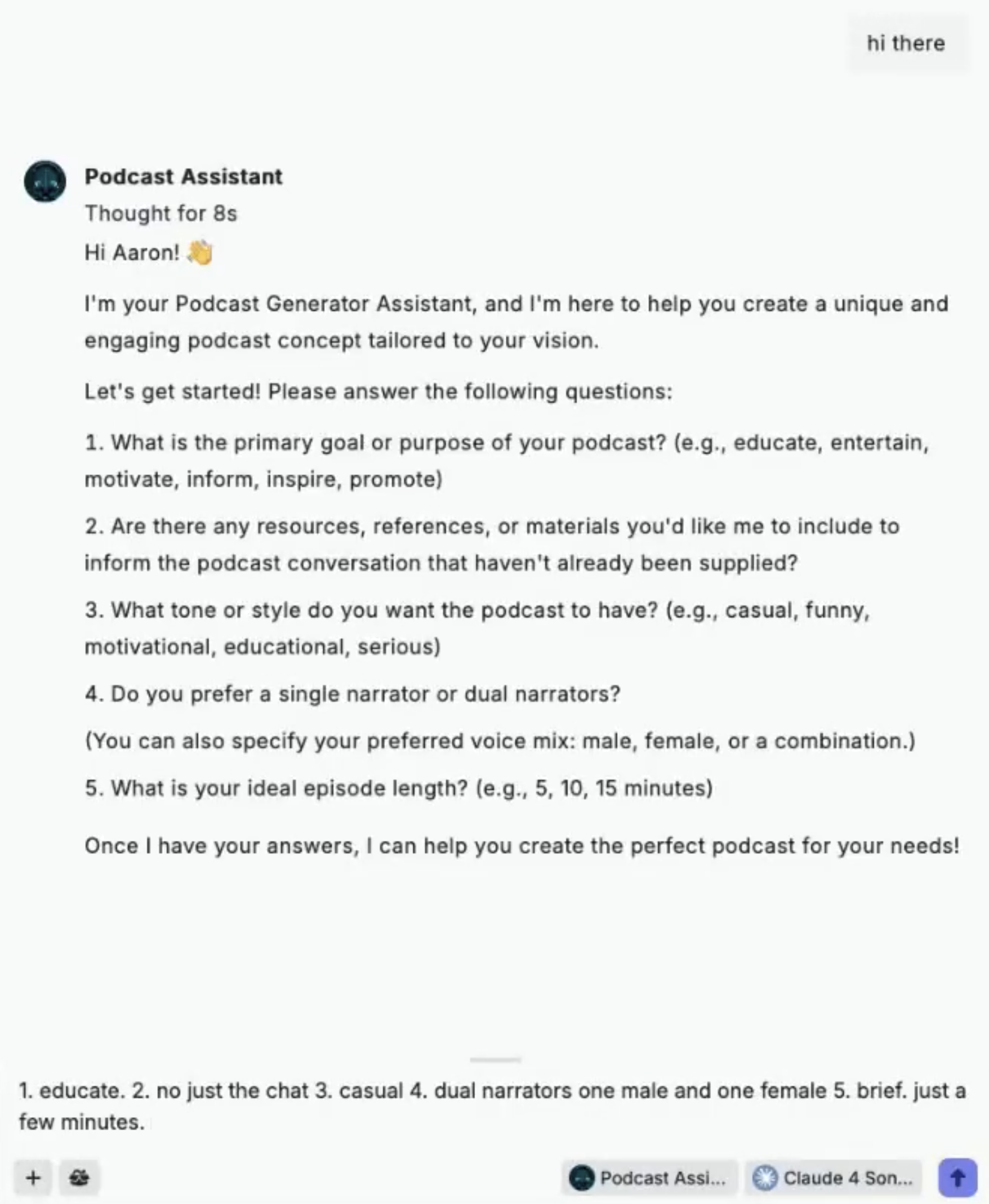Create AI podcasts with Madgwick
Transform your Madgwick content and research into professional-sounding podcasts in minutes using the new Podcast Maker MCP tool. You can quickly generate a podcast from your interactions to create an engaging audio summary for students, or audio content you can consume on the go.
Getting started: Install the Podcast Maker MCP
Step 1: Access the MCP configuration
Click on your initials in the top right, and the MCP Store link at the top of the drop-down, or use the Box icon in the bottom left of your chatbox, and click Manage Connections.
Look for Podcast Maker under ‘Audio creation’ (or use the search function).
Step 2: Install and activate
Click Install Podcast Maker
Select Add a connection to Podcast Maker
Verify it shows as "active" in your account
Add LabNext70’s Podcast Assistant
Step 3: Add our dedicated assistant
Use the share link to open LabNext70’s custom Podcast Assistant – and click Add Assistant.
Creating your podcast
Step 4: Research and script development
You can now use the Podcast Assistant to guide you to create podcasts from existing or new chats. You can use your normal processes for research to gather context for the podcast – including new deep research and academic search MCPs, which can be found under Research in the MCP Store.
Step 5: Add LabNext70’s Podcast Assistant in your chat
Once you are satisfied you have the right information in your chat context, swap in the Podcast Assistant by clicking on the current assistant name in the bottom right of the chat box, and replacing it with the Podcast Assistant.
Say ‘hi’ and the Podcast Assistant will guide you through the steps to make your podcast. Answer the provided questions and the Podcast Assistant will create a script, then use the Podcast Maker MCP to generate the audio file.
The audio file can then be downloaded as an MP3 file for use.
Best practices
Start simple: Get comfortable with short content before attempting longer formats
Iterate freely: Not happy with the tone? Ask for a remake with different hosts or style
Research first: Let the AI gather information before creating your script for more accurate content
Use 1.2x playback speed: If listening in Madgwick, try 1.2x speed (bottom left below audio), as this can help make the podcast sound more natural
Custom cover art: Use new image MCPs to create the artwork, or you can drag and drop your own images if you prefer manual control.
Find out more by viewing the Madgwick Community of Practice presentation (starts at 46 minutes) or checking our MCP guide.






